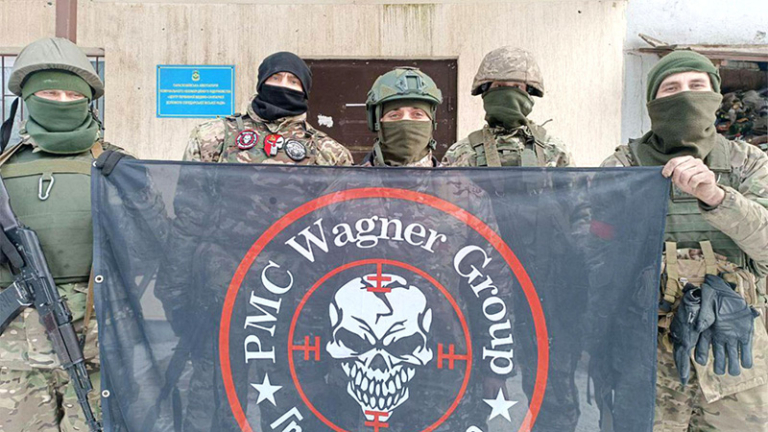
If you’ve watched Avatar (2009), you may recall SecOps, a private security force hired to protect corporate interests on the planet Pandora. In the real world, Private Military Contractors (PMCs) operate in a similar manner: highly trained professionals, often former soldiers or intelligence operatives, hired for military and security tasks but not employed by a government’s official armed forces (i.e. they are not part of the state’s forces).
The Invisible Paper Trail
Some PMCs, like the Blackwater group, have had contracts with governments such as the U.S., but these contracts are often written in ways that obscure their true purpose. They are typically described as being for logistical support, yet, due to government confidentiality, these arrangements often lack public scrutiny. While a paper trail may exist, it is often deliberately hidden and confidential.
This distinction is important. PMCs are not bound by the same rules, uniforms, or accountability structures as national militaries. They are essentially “armies for hire,” working on contract basis for governments, corporations, or international organizations. Their work ranges from frontline combat and protection of high-value targets to intelligence gathering and logistical support. Because they operate outside traditional military structures, PMCs offer governments a way to engage in conflict with plausible deniability, reducing official troop deployments, avoiding political scrutiny, and shifting accountability.
The Rise of Private Modern Mercenaries
The use of PMCs expanded rapidly after the Cold War, as global militaries downsized and new conflicts emerged. The U.S.-led invasion of Iraq in 2003 marked a turning point. PMCs were used to train local militias, secure non-military personnel, guard construction projects, and transport supplies, essentially performing a wide range of military and civilian functions in a war zone.

By 2020, on the eve of the U.S. withdrawal from Afghanistan, there were 22,562 contractors working in the country, which was twice the number of American troops at the time. Between 2001 and 2021, more PMC contractors (over 3,500) died in Afghanistan than U.S. soldiers (2,402), underscoring their critical but often invisible role in modern conflict.
On the other side of the world, Russia’s Wagner Group became a key player in Moscow’s military strategies. Though unofficial, Wagner has been linked to operations in Ukraine, Syria, and various African states, enabling the Kremlin to project power without direct military attribution.
Roles and Services Provided
PMCs provide a wide range of services, including:
- Combat operations in active war zones
- Security and protection for diplomats, VIPs, and critical infrastructure
- Training and advising foreign militaries and police forces
- Logistics, intelligence, and surveillance for operational support
They are often deployed when states need fast, flexible, and specialized responses that regular armed forces may be too slow or politically restricted to deliver.
Controversy and Accountability
Despite their utility, PMCs are highly controversial. Operating in legal and ethical grey zones, their actions often escape meaningful scrutiny. PMCs can undermine democratic oversight, contribute to human rights abuses, and shift the burden of warfare to profit-driven enterprises.
A stark example is the 2007 Nisour Square massacre, when Blackwater contractors opened fire in Baghdad, killing 17 Iraqi civilians, including women and children. The incident caused global outrage and exposed the dangers of limited accountability for PMCs. In this rare case, the contractors were prosecuted and convicted in the U.S., largely due to intense international pressure and the need to address a major crisis in U.S.-Iraq relations. However, such prosecutions are uncommon, and there is still no consistent, global system of accountability for a Private military company’s actions.

Concerns also persist over corruption, inflated contracts, and the political influence of major Private military company (or contractor) firms. One of the most controversial examples was KBR, formerly owned by Halliburton, which received billions in U.S. government contracts during the Iraq War. The firm had deep ties to the Bush administration; then Vice President Dick Cheney was Halliburton’s former CEO, raising ethical questions about profiteering.
The Future of Warfare
Despite these controversies, PMCs are likely to play an even larger role in future conflicts. Their ability to rapidly deploy specialized personnel and integrate advanced technologies, such as drones and cyber tools, makes them increasingly valuable in today’s asymmetric wars.
Yet this evolution also demands urgent regulation. Most major powers, including the U.S., Russia, and China, have not signed international treaties banning mercenary activity. Without stronger oversight, PMCs will continue to operate in the shadows, outside public view, and often outside the law.
As the boundaries between private enterprise and military power continue to blur, the question remains: Who really controls the future of war, and who is held accountable when things go wrong?
For more such informative articles , checkout theWorldTimes



